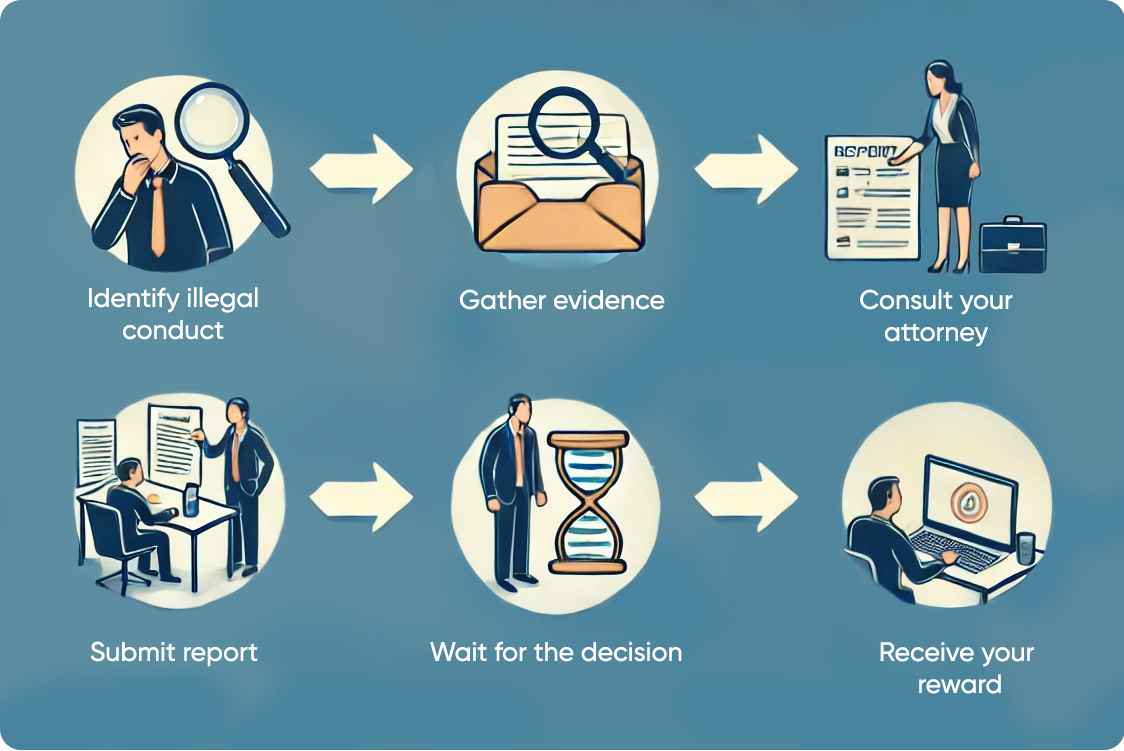A whistleblower is someone who reports illegal or unethical activities they have witnessed, usually in a workplace or organization. Anyone with knowledge of fraud, corruption, or violations of laws can become a whistleblower. They do not need to be directly involved in the wrongdoing but must have firsthand knowledge of the misconduct. Legal protections are available to ensure whistleblowers are not retaliated against for their actions.
Whistleblowers can report a wide range of fraudulent activities, including:
- False billing or claims (e.g., for services not rendered)
- Corruption or bribery (involving government contracts or procurement)
- Insider trading (involving non-public information)
- Money laundering activities
- Environmental violations (illegal dumping or pollution)
- Tax evasion (false reporting of income, deductions, etc.)
- Consumer fraud (misleading advertising or defective products)

To support a whistleblower case, you need credible, specific evidence of wrongdoing. The evidence must be relevant and directly demonstrate the violation.
Whistleblowers can remain anonymous, especially if you file through a whistleblower law firm. Whistleblower lawyers help protect your identity, ensuring that it remains confidential while still allowing you to report fraud or misconduct – depending, however, on the specific whistleblower program and the nature of your case. Your specialized whistleblower attorney can advise you on how to maintain your privacy throughout the process.

Please be advised that there are no obligations incurred until we have conducted a comprehensive review and reached a determination regarding the potential for proceeding with your matter.
Submit your case anonymously

 English
English  Español
Español  Русский
Русский  Turkish
Turkish  Persian (فارسی)
Persian (فارسی)  Arabic (العربية)
Arabic (العربية)  简体中文 (中国)
简体中文 (中国)